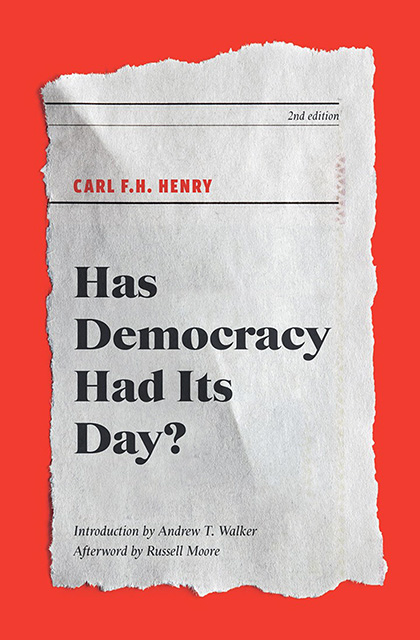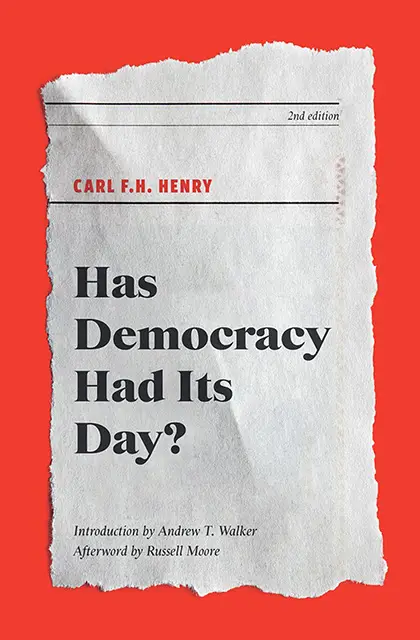NASHVILLE, Tenn. – A small volume written by the late evangelical Christian theologian Carl F.H. Henry in his latter years has gained new life because of the efforts of a Southern Baptist entity.

The Ethics and Religious Liberty Commission (ERLC) has republished Henry’s 1996 book – “Has Democracy Had Its Day?” – under its Leland House Press imprint. The same entity – then known as the Christian Life Commission (CLC) – originally published the book.
Henry, who died in 2003 at the age of 90, is regarded as one of the most significant evangelical theologians – if not the most significant – of the 20th Century. He is known for writing such books as “The Uneasy Conscience of Modern Fundamentalism” and his six-volume set, “God, Revelation, and Authority.” He also served as Christianity Today’s first editor.
The ERLC republished Has Democracy Had Its Day? in conjunction with its latest Research Institute meeting Oct. 2-3. The institute’s fellows discussed the theme of Henry’s book under the meeting title: Has Democracy Had Its Day? Evangelicals, Liberal Democracy, and a Culture in Crisis.
In Has Democracy Had Its Day?, Henry questions whether a “democratically chosen and constitutionally limited government” disconnected from ultimate truth revealed in the Bible can remain viable. He asserts evangelicals’ duty is to display “again the truths and ethical absolutes of revealed religion – not least of all that Jesus Christ is ‘the truth’ – and define the public behavior this implies for a secular culture that has reached a moral dead end, and to do so compatibly with democratic principles.”
In a new afterword, ERLC President Russell Moore says the book remains “relevant in its warning.”
More than two decades ago, Henry “saw through something on the horizon,” Moore writes. “He foresaw a kind of political idolatry that would define the boundaries even of religious communities according to shifting demands of power loyalties rather than by theological and experiential truths.”
“[M]uch of what Dr. Henry saw has come to pass,” he writes. This includes a “hyper-secularizing impulse” that demands “a majoritarian view of religious freedom,” a deep lack of moral consensus and different expressions of “anti-democratic forces” on both the left and right, he says.
“The confusions inherent in the evangelical models of [cultural] engagement that Henry mentions are even more pronounced now, resulting in massive fissures between the generations,” Moore writes.
In a new introduction, Andrew Walker, the ERLC’s director of research and senior fellow in Christian ethics, says of the book, “Henry offered no Pollyannaish gloss on what he saw coming, which is a Western civilization severed from the transcendental foundation that give it its initial legitimacy. Were he alive today, I’d have to believe that Henry would not only affirm what’s written here but sound an even louder alarm.”
Henry’s “words and legacy may need more attention and more retrieval right now than at any prior time,” Walker writes.
The late theologian “had a crystal ball in effect,” Walker told Baptist Press.
Henry’s book is an expansion of a lecture he delivered in 1995 at the Acton Institute in Grand Rapids, Mich. In the original introduction, then CLC President Richard Land said, Henry contacted him to see if the entity would be interested in publishing his book. Land described it as “one of the most important things ever written by Dr. Henry.”
The book is available for purchase on Amazon at https://amzn.to/2M2tmwO.
Written by Baptist Press, the official news service of the Southern Baptist Convention.

